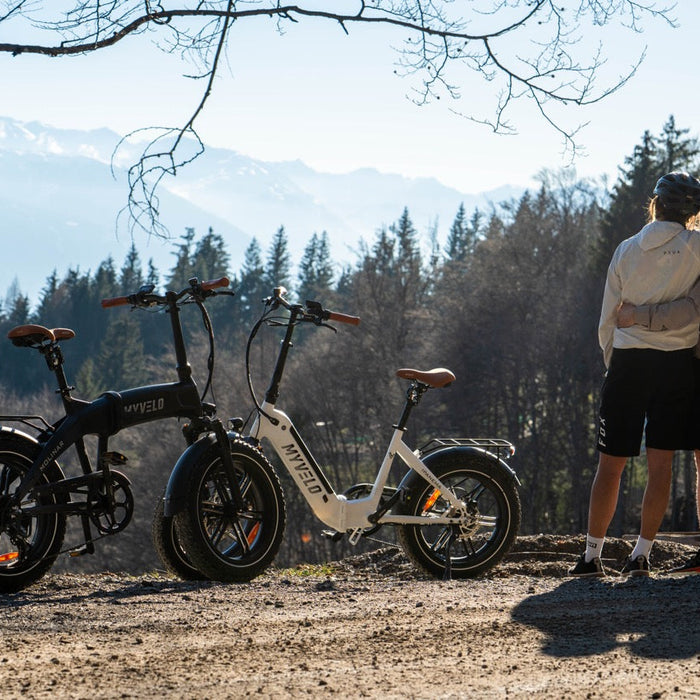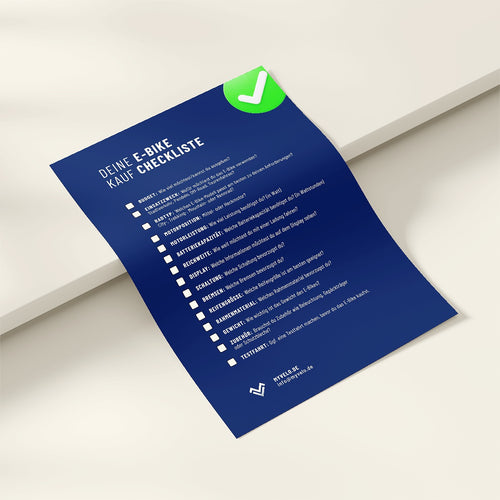

Does riding an e-bike make you lazy?
Von Fabian Huber |
4 minutes read time
Stereotypes say that e-bikes and pedelecs are primarily used by people who don't want to move around too much. The reason is that you don't have to pedal as hard and your muscles are put under comparatively little strain. This means that e-bike users are quickly labelled as people who prefer to sit behind a desk rather than train their stamina.
This idea is misleading. Various studies have shown this. Now we know that this stereotype does not correspond to the truth. On the contrary!
Pedelec riders ride more often and even longer distances
A large-scale European study surveyed 10,000 people about their e-bike use and came to interesting and surprising results. According to the results of the study, the calorie consumption of Pedelec riders is the same as that of users who use conventional bicycles.
At least we are not surprised by this result - inspired by the additional power provided by the motor, one or two e-bike riders (including us) have apparently already cycled into another sphere. In competitive sports, this is also known as the "tunnel".
This phase is characterized by extreme motivation and effort. The study conducted by Transportation Research Interdisciplinary Perspectives was published by sciencedirect.com in June 2019 and shows that the power input of pedelec riders is at a similar weekly level to that of cyclists. The study cites the increased range of pedelec riders as the main reason for this.
According to the study , e-bike riders cover an average distance of 9.4 km on tours, while cyclists only manage a distance of 4.8 km . Even in their daily commute , cyclists cover less distance, at 5.3 km, than e-bike riders, who cover an average of 8 km per day.
E-bike riders are currently on average even older
The study also showed that the average age of Pedelec riders is almost 48 years old, which is higher than that of cyclists, who are on average 41.1 years old.
We believe that this trend will even out over the next one to three years until e-bike riders finally catch up. We believe the reason for this is the strong boom in the lifestyle sector, which is becoming increasingly popular, especially among young people. You can buy your dream bike here.
It is also worth mentioning that the BMI (body mass index) is slightly higher among e-bikers. We particularly like this fact because it supports the theory that e-bikes motivate some people to cycle more. A great finding, in our opinion.
The number of bicycle commuters is increasing thanks to e-bikes
Politicians are not the only ones who have already given concrete thought to how bicycle commuters can be explicitly rewarded for their mobility. There has even been talk of granting bicycle commuters an extra day of vacation - after all, it has been proven that they are less likely to get sick and, on top of that, they cause significantly less traffic jams in urban areas, especially during rush hour.
This blog post has already pointed out the space problem in urban areas. Accordingly, city planners can also refer to the results of the study when developing new transport concepts, as it contains some very interesting figures. In particular, future transport concepts should take into account infrastructure for pedelecs and S-pedelecs.
The study participants who switched to an e-bike reduced their car use by 49 percent and used public transport 48 percent less. Considering the above arguments such as improved health and the reduction in traffic, one could easily come to the conclusion that greater government support for pedelecs should be an essential part of the mobility transition.
Conclusion
Everyone is talking about e-bikes. The electric assistance when cycling makes the bicycle a popular means of transport. But is it true that e-bikes encourage laziness?
In this article, we have dealt with the topic in detail. In order to get a reliable answer to the question posed, we will list the reasons for and against it here:
It's true: e-bikes are indeed a convenient means of getting around, allowing people to travel longer distances without pushing themselves beyond their limits.
But they also help you stay active. Studies have shown that e-bike users not only burn the same number of calories as users of traditional bikes, but often also cover longer distances. And what's even more surprising: the average age of people who ride e-bikes is also higher.
In addition, the increased use of e-bikes also has a positive impact on road traffic: the reduced use of cars reduces traffic jams! In this context, the environmentally friendly aspect associated with the use of e-bikes is also relevant.
It is a misconception that e-bikes encourage laziness. They not only make you live more actively, but also healthier. Whether you are alone, as a couple or with your loved ones - trips on an e-bike are fun!




